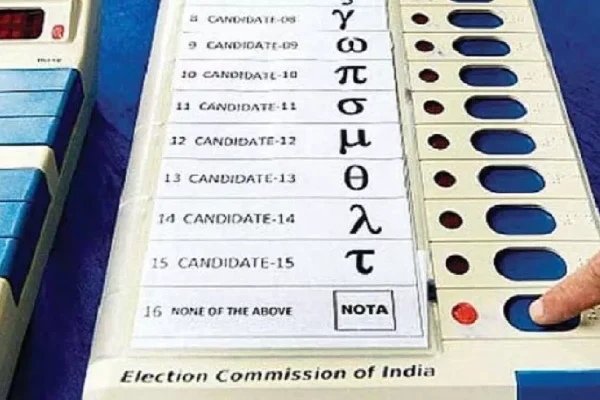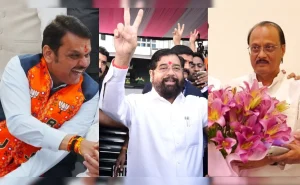
Nagpur: The None of The Above (NOTA) option once again asserted its relevance in Maharashtra’s political landscape, garnering over 4.60 lakh votes in the recently concluded Assembly elections. While this marked a decrease of 2.81 lakh votes compared to the 2019 polls, NOTA managed to surpass the vote count of more than 2,600 candidates across the state, influencing outcomes in constituencies with wafer-thin margins.
Introduced in 2013 as a tool for voters to reject all candidates on the ballot, NOTA’s role as a measure of public dissatisfaction remained significant. It accounted for 1.2% of the total votes polled and played a critical role in constituencies where the margin of victory was narrow.
In Vidarbha’s Sakoli constituency, the impact of NOTA was particularly evident. Congress State President Nana Patole narrowly secured victory over BJP’s Avinash Brahmankar by just 208 votes, while 1,350 voters opted for NOTA. Similarly, in Pathri, NCP (Ajit Pawar faction) candidate Rajesh Vitekar won by only 687 votes, with 1,657 voters rejecting all candidates.
NOTA’s influence extended across both rural and urban constituencies. In Nagpur North, 21 candidates failed to match NOTA’s 988 votes, while urban areas like Nagpur Southwest and Pune Cantonment reported significant NOTA counts exceeding 1,800.
Independent candidates bore the brunt of NOTA’s growing popularity, as 64% of the 4,136 contestants failed to secure more votes than this option. Among them, 2,086 independents trailed behind NOTA, underscoring widespread voter apathy toward fringe candidates and unknown contenders.
In Nanded North, 27 candidates were outpaced by NOTA’s 596 votes. Aheri in Gadchiroli saw the highest NOTA count with 5,825 votes, followed by Dahanu in Palghar and Akkalkuwa in Nandurbar, both exceeding 5,000 votes.
Rural regions, often grappling with unemployment and poor infrastructure, recorded higher NOTA votes, reflecting frustration with governance and policy implementation. Analysts observed that NOTA’s rise highlighted voters’ growing discontent with traditional political options and uninspiring leadership.
Major political alliances, including the BJP-led Mahayuti and the Congress-led Maha Vikas Aghadi (MVA), were not immune to the NOTA effect. In constituencies with close contests, NOTA votes acted as a decisive factor, influencing outcomes and denying victories.
The election results underscore a powerful message to political parties: voters are increasingly unwilling to compromise on quality representation. With over 2,600 candidates rejected and a noticeable impact in key constituencies, NOTA has emerged as a tool of accountability, urging parties to rethink candidate selection, policy focus, and grassroots connections.
As Maharashtra transitions into a new political chapter, the growing assertion of NOTA serves as a wake-up call for better governance and accountability. Voters have shown that they demand more than just promises — they seek genuine representation and action.
Political experts attribute NOTA’s sustained popularity to several factors — lack of credible candidates, disillusionment with governance, and growing awareness.















